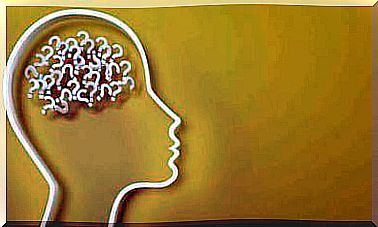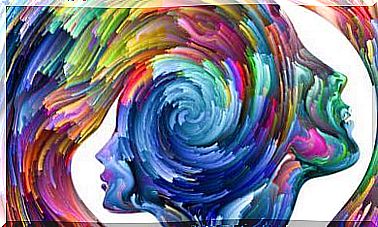How To Deal With Emotions In Times Of Crisis

Dealing with emotions in times of crisis is not an easy task, especially with our own emotions. We often experience them in a chaotic, disturbing and also exhausting way. Fear mingles with anxiety and, at the same time, we feel a pang of hope that encourages us to move forward despite everything, but frustration and even anger also arise when we see that things don’t always go as expected.
Emotions move, they come and go, they trap us and alter our thoughts. The anatomy of these psychophysiological realities determines us completely, but generally we follow without knowing how to use their potential and their incredible usefulness that can allow us to move forward, surviving in complex scenarios that we are going through at this moment.
In Great Expectations , Charles Dickens said that a heart that loves, feels, rejoices, and suffers often reflects the most authentic of wisdom. Perhaps we’ve forgotten this last point: being able to live through this broad palette of emotions and feelings that life brings (and learn from them) is one of the most remarkable advantages we possess.
In times of crisis, change and uncertainty, the most litmus test of all falls to us. The test that implies it is not enough just to survive, to resist all the storms, all the attacks and setbacks that fate may bring.
It is also about drawing a plan to make our own way, to move forward with determination, keeping our clear goals in mind to achieve balance and well-being. Let’s delve into this subject.

Dealing with our emotions during crises
The amazing thing about seizures is that the brain processes them as a threat. These periods, which are normal and somewhat expected throughout life and the actual cycle of the entire society, are seen by our minds as the rupture of something that was already right.
The fact that many of the things that were not safe or predictable are changing activates our cerebral amygdala, producing high doses of negative valence emotions such as fear and anger.
The well-known anthropologist Juan Luis Arsuaga points out that each era, each cycle of humanity has its own crisis, and we experience the crisis that involves us and everyone we know. Therefore, there is no single strategy that allows us to disappear from the context in which we are inserted.
What there is, in fact, is an obligation. The ideal is to try to act as responsible individuals, ‘and this happens first by taking care of our mental health, our emotions.
Accept our emotional ups and downs
First of all, we must understand one thing for dealing with our emotions during times of crisis: The emotional web we experience in these moments is made up of ups and downs —sometimes we get angry, then we get hopeful, and then we feel anguish.
The fact that this happens is completely normal. It is necessary to accept every emotion felt. We must validate every sensation experienced by our body, every feeling that settles in our mind.
These emotional ups and downs are not the result of a mind losing control. This is not a psychological disorder. These are completely normal processes.
Emotions are “visceral” during crises
We usually experience emotions viscerally during periods of crisis. What does that mean? It means we’ll have a stomachache. It implies that our appearance will get more tired, we will feel more like going to sleep at some point of the day. Little by little, hyperactivity arises and, with it, the desire to move. Later comes the headache or stomach pain.
These uncomfortable “nomads” are the result of emotions manifesting in our body and asking, at the same time, to be accepted, understood and managed by our mind. Therefore, we cannot fail to attend to these physical sensations.
Dealing with our emotions during crises: giving space and transforming
To deal with our emotions during crises, we must first understand what our emotional pattern is in these circumstances. That is, there are people who react with high anxiety when faced with a change or a situation of uncertainty. Others, however, use a calmer, more centered and flexible look.
In any case, we know it’s not easy for anyone. But the most important thing is not to lose control. Mental health is feeling the right emotions at the right time and understanding how to respond. In other words, in complex moments it is understandable to feel sadness, fear, discomfort, anger, etc. Not acknowledging these emotions, denying them or amplifying them to the point of getting carried away by them is not the best thing to do.
It is necessary to know how to identify each emotion. It is necessary to make this giant and chaotic knot of emotions become small parts so that it is possible to identify them and make room for them, accepting them. Later, the time will come to “tam them”.
One thing that should be clear is that we cannot turn a negative emotion into a positive emotion. No one can go from sadness to joy, even if he wants it with all his strength. The brain doesn’t have a switch. Instead, it has a prefrontal cortex that allows us to reflect, to look at things from another perspective.
A study carried out by Dr. Barbara Fredikson, from the University of Michigan, proved something important. Educating our brain in dimensions such as hope, thinking that tomorrow will be better than the present and that things will get better, can help us in times of crisis.

Create Emotional Refuges: We’re All Going Through the Same
Dealing with our emotions in times of crisis also involves knowing how to ask for help. Let’s not forget that this crisis is global and that somehow most of us face the same fears and needs.
Being able to count on someone is always a positive thing. Creating emotional havens with people we can talk to, vent and share thoughts with is very cathartic and beneficial.
To conclude, as Albert Einstein said, only imagination is more decisive than knowledge itself in times of crisis. It is this that helps us to create possible change routes to respond well to problems. However, we cannot forget the emotional aspect. Taking care of this internal universe is decisive in order to always give our best.









